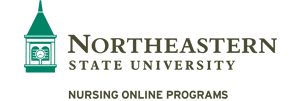Many RNs go back to school for the same reason — to earn more money. The DailyNurse 2017 Nursing Salary Report reveals that RNs with an Associate Degree in Nursing (ADN) make roughly $5,000 less each year than their colleagues who have a Bachelor of Science in Nursing (BSN). The difference can also be more significant. Hourly RN pay rates range from $22-$52, but nurses often need a BSN to reach the higher end of that scale.
A 2017 survey by the American Association of Colleges of Nursing (AACN) demonstrates one reason why BSN graduates earn more than those with an ADN — demand for BSN graduates is strong. About 73 percent of new BSN graduates have a job offer waiting for them at graduation, and 94 percent have a job offer within six months of graduation.
The fact that many healthcare employers prefer the BSN degree drives competition for BSN nurses. This can in turn increase salaries for BSN-prepared nurses. BSN nurses may also find it easier to move up the nursing career ladder for this reason, earning more at each rung.
Opportunity Knocks
The road to better pay and more responsibility may begin with earning a BSN, but it doesn’t end there. Here are a few examples of nursing roles that allow BSN graduates to expand their knowledge and skills while making a better living. Salary data is from PayScale and the U.S. Bureau of Labor Statistics (BLS).
Median Annual Salaries
- Charge Nurse – $68,254, per PayScale (July 2018)
- Nurse Educator – $72,887, per PayScale (July 2018)
- Nurse Manager – $82,886, per PayScale (July 2018)
- Advanced Practice Registered Nurse – $91,280, per PayScale (July 2018)
- Nurse Practitioner – $107,480, per U.S. BLS (May 2017)
- Nurse Anesthetist – $169,450, per U.S. BLS (May 2017)
Nurses who want to work for the government will also earn more with a BSN. The U.S. Veterans Administration hires more nurses than any other healthcare system in the nation, but a BSN is required for a promotion or a pay raise above entry level. The U.S. Public Health Service also requires the BSN before nurses can serve as commissioned officers.
Careers in Education
BSN nurses find satisfying and profitable careers in many areas of medical education as well. They work in hospital residency and research programs, and train others through curriculum development and instructional design. They also manage courses for online certification and continuing education, and they play other important education support roles.
There is also a shortage of nursing faculty in America. This has led to more opportunities in clinical and classroom education for nurses with a BSN. Nurses who pursue an advanced degree, such as an MSN, can serve as an Assistant, Associate or full Professor of Nursing.
Demand for nursing faculty is especially high in rural areas — 27 percent of nursing schools do not have enough qualified instructors in their region, according to the AACN Survey on Vacant Faculty Positions for Academic Year 2017-2018. This need will grow in the next decade in cities as well. Since the average nursing professor is nearing retirement age, schools will need to recruit a new generation of BSN, MSN and PhD nurses to fill these roles in the future.
The choice to go back to school is a personal one, and each RN must decide whether a BSN is necessary for his or her career. It is clear, however, that the additional earning power and employment options a BSN provides can help many nurses achieve their career goals.
Learn more about the Northeastern State University online RN to BSN program.
Sources:
Daily Nurse: The Springer Publishing Company 2017 Nursing Salary Report
U.S. Bureau of Labor Statistics: Occupational Employment and Wages, May 2017 – Registered Nurses
U.S. Bureau of Labor Statistics: Occupational Employment and Wages, May 2017 – Nurse Practitioners
U.S. Bureau of Labor Statistics: Occupational Employment and Wages, May 2017 – Nurse Anesthetists
PayScale: Registered Nurse (RN) With Basic Life Support (BLS) Skills Salary
PayScale: Nursing Manager Salary
PayScale: Advanced Practice Registered Nurse (APRN) Salary
AACN: Employment of New Nurse Graduates and Employer Preferences for Baccalaureate-Prepared Nurses
AACN: The Impact of Education on Nursing Practice
AACN: Special Survey of Vacant Faculty Positions for Academic Year 2017-2018


